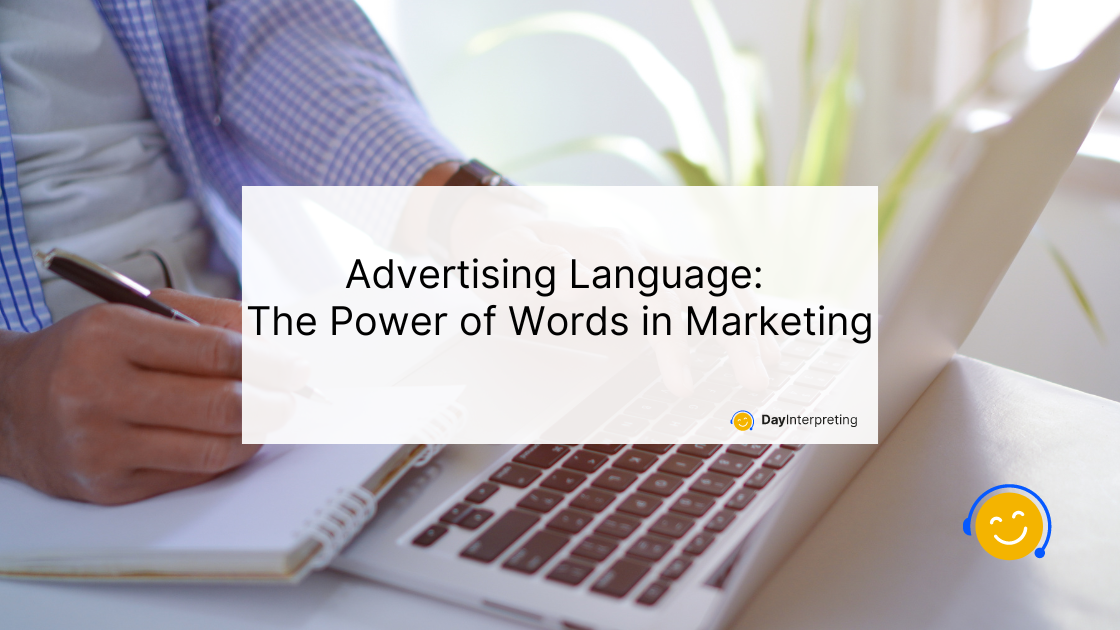Imagine you’re walking down the street and you see a huge billboard. The colors are bright, and there’s a big, catchy slogan that grabs your attention. You can’t help but read it, and before you know it, you’re thinking about buying the product advertised. That’s the power of advertising language! In this post, we explore the ins and outs of marketing lingo as well as why and how it is so effective!
What is Advertising?
Advertising is how companies tell people about their products or services. They use different kinds of media, like TV, radio, newspapers, websites, and social media, to share their message. The goal is to make people want to buy what they’re selling. But it’s not just about showing a picture of the product. It’s about using words to create a feeling or tell a story that makes you interested.
The Magic of Words in Advertising Language
Words possess a unique magic, a power to evoke happiness, excitement, curiosity, and even hunger! Advertisers meticulously select their words to ensure they elicit the desired emotional response. Consider the word “fresh.” It conjures images of novelty and cleanliness. When a food company claims their product is “fresh,” your mind immediately envisions a delicious and healthful treat.
Slogans: Short and Sweet
A slogan, a concise and memorable phrase, has the potential to leave a lasting impression. Some of the most effective slogans are just a handful of words, yet they convey a wealth of meaning. Take Nike’s globally recognized slogan, “Just Do It.” It’s straightforward, yet it instills a sense of inspiration and readiness to tackle any challenge. Slogans are crucial as they are easy to recall and swiftly communicate a brand’s essence.
Emotion in Advertising
Have you ever seen a commercial that made you laugh or even cry? That’s because advertisers know that emotions are powerful. When you feel a strong emotion, you are more likely to remember the ad and the product. Words can create these emotions. For example, a commercial for a pet adoption center might use words like “love,” “family,” and “forever” to make you feel warm and fuzzy inside, encouraging you to adopt a pet.
Storytelling: Bringing Ads to Life
People love stories. They capture our attention and make us want to know what happens next. Advertisers use storytelling to make their ads more interesting. They create little stories about how their product can change your life. For example, an ad for a new phone might show a teenager using it to stay connected with friends, take amazing photos, and even help with schoolwork. This story makes you imagine how the phone could make your life better too.
The Right Words for the Right Audience
Not everyone likes the same things. Advertisers need to think about who they are trying to reach with their message. This is called the target audience. The words that work for one group of people might not work for another. For example, an ad for a toy might use fun and playful words like “exciting,” “cool,” and “awesome” to appeal to kids. But an ad for a luxury car might use words like “elegant,” “sophisticated,” and “premium” to attract adults who are looking for something high-end.
The Power of Persuasion
Persuasion is all about convincing someone to do something. In advertising, this means convincing people to buy a product. There are different techniques that advertisers use to persuade people. One technique is to make the product seem very special and unique. They might use words like “exclusive,” “limited edition,” or “one-of-a-kind” to make you feel like you have to have it before it’s gone. Another technique is to use testimonials, where real people share their positive experiences with the product. Words like “life-changing,” “miracle,” and “must-have” can make you trust the product more.
The Impact of Digital Advertising
With the rise of the internet, digital advertising has become super important. Advertisers use websites, social media, and emails to reach people. One cool thing about digital advertising is that it can be very personalized. Advertisers can use data to find out what you like and then show you ads that match your interests. This makes the words they use even more powerful because they are speaking directly to you.
The Future of Advertising Language
As technology continues to change, so does advertising. New tools like artificial intelligence and virtual reality are creating exciting possibilities for how advertisers can use language. Imagine seeing an ad that talks to you directly or even lets you interact with the product in a virtual world. The future of advertising is all about making the experience more personal and engaging.
Wrapping Up on Advertising Language
Language is a powerful tool in advertising. The right words can create emotions, tell stories, and persuade people to take action. Whether it’s a catchy slogan, a heartfelt story, or a personalized digital ad, words have the magic to make us feel, think, and act. So, next time you see an ad, pay attention to the words they use and think about how they make you feel. You might just find yourself amazed at the power of advertising language!





0 Comments